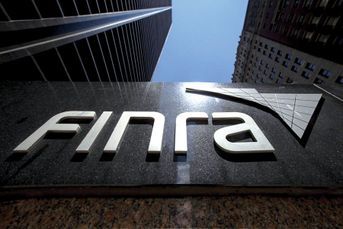DOL fiduciary rule could take $2.4 billion bite out of financial services industry
Implementing the standard on retirement accounts could reduce annual revenues by more than twice current estimates, according to a Morningstar report.
Implementing the Department of Labor’s proposed fiduciary standard on retirement accounts will hit the financial services industry harder than many believe and reduce annual revenues by $2.4 billion, or more than twice some current estimates, according to new research.
The DOL’s proposed conflict-of-interest rule “could drastically alter the profits and business models of investment product manufacturers like BlackRock and wealth management firms like Morgan Stanley that serve retirement accounts,” according to Stephen Ellis, director of financial service equity research at Morningstar Inc. “Current government and financial industry reports have a high-end annual cost of $1.1 billion,” but the low-end impact could be more than double that at $2.4 billion, Mr. Ellis wrote in a research note issued yesterday.
The $2.4 billion number is Morningstar’s low-end estimate of prohibited mutual fund front-end load commissions and mutual fund 12b-1 fees paid to full-service wealth management firms for commission-based IRAs. It is a revenue number, according to Morningstar. Some industry groups have interpreted the lost revenue to financial advisory firms as a cost of the proposed regulation.
The White House believes that retirement savers lose $17 billion annually due to brokers selling them high-fee products. Industry trade groups such as the Securities Industry and Financial Markets Association and the Investment Company Institute have sharply criticized the proposal.
There will be winners and losers as the new rule takes effect, Mr. Ellis wrote. More than $1 trillion of client assets could move into passive investment products after the DOL rule takes effect, he noted. “The increase would be from higher adoption of robo-advisers, increased usage of passive investment products from financial advisers that formerly may have been swayed by distribution payments, the proposed ‘high-quality, low-cost exemption, and the effect of advisers trying to balance out higher explicit financial planning charges.”
“We believe the beneficiaries will be discount brokerages like Charles Schwab; companies tied to passive investment management, like State Street; and robo-advisers,” Mr. Ellis wrote. “Conversely, some life insurance companies, like Prudential Financial, will probably be challenged.”
Learn more about reprints and licensing for this article.








